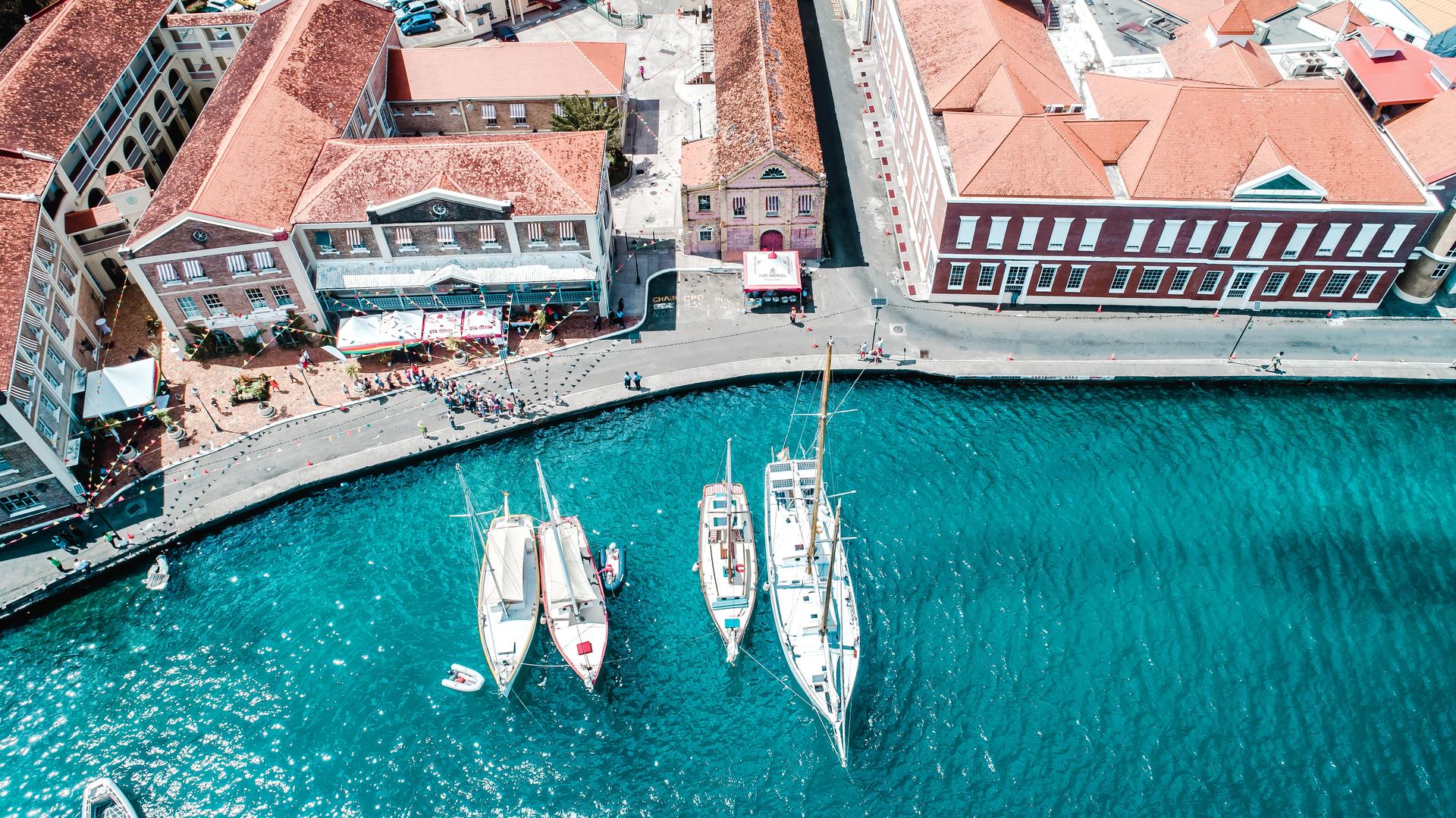Grenada🇬🇩

Grenada, also known as the 'Island of Spice' due to its rich production of nutmeg and mace crops, is a country situated in the Caribbean Sea. It is located northeast of Venezuela, Trinidad and Tobago. The country consists of the island of Grenada itself and six smaller islands at the southern end of the Grenadines. It is known for its vibrant culture, traditional music, folklore, and beautiful landscapes. Its famous attractions include the sandy beaches, clear waters, lush rainforests, and the underwater sculpture park. The country enjoys a friendly and cordial relationship with its neighboring countries, and it is part of various regional political and economic alliances.
⚠️Things you should avoid⚠️
- Avoid isolated areas and walking alone at night, especially for women.
- Avoid disrespectful behavior towards local customs and traditions. Grenadians are generally religious and conservative.
- Avoid driving unless you're familiar with driving on the left side of the road.
- Avoid discussing sensitive topics such as politics and homosexuality.
- Avoid areas with standing water and take precautions to prevent mosquito bites.
- Avoid displaying large amounts of cash or valuable belongings to prevent theft.
- Avoid traveling without appropriate travel and medical insurance.
- Do not touch or disturb marine life while snorkeling or diving.
- Avoid using tap water if you have a sensitive stomach.
- Avoid traveling during the hurricane season if possible.
Overall
7
Crime 🔫
6
Grenada generally has a lower crime rate compared to other Caribbean nations. However, petty crimes like theft, bag-snatching occur, particularly in the capital, St. George's. Visitors are advised to take precautions such as avoiding isolated areas at night.
Terrorism 💣
9
Terrorism risk in Grenada is low. There have been no reports of significant terrorist incidents in the country. The government is proactive in implementing anti-terrorism initiatives and has demonstrated the capacity to address potential threats.
War ⚔️
10
Grenada is a politically stable country and does not have a history of recent conflicts or wars. The last significant conflict in Grenada was the US-led invasion in 1983, which ended quickly.
Natural Disasters 🌊
4
Grenada is susceptible to natural disasters such as hurricanes and earthquakes. The Hurricane Ivan in 2004 was one of the severe natural disasters, causing widespread damages. Visitors are advised to be aware of the hurricane season from June to November.
Medical Care 🏥
6
Medical facilities in Grenada are limited and advanced care is lacking. The St George's General Hospital is the main healthcare provider. For serious conditions, patients would need to be evacuated to a country with advanced healthcare facilities.
Tap Water Quality 💧
7
Tap water in Grenada is generally safe to drink. However, visitors with sensitive stomachs are advised to drink bottled water.
Disease Burden 🤒
7
Grenada has access to good healthcare and immunisation programs which have controlled the prevalence of infectious diseases. However, Dengue Fever and Zika Virus were reported in the past. Visitors are advised to take precautions against mosquito bites.
Corruption 💸
6
Grenada generally has a fair level of corruption perception. The government is engaged in efforts to deal with corruption and has implemented several reforms in recent years.
Safety for Women ♀️
7
Grenada is relatively safe for female travelers. However, women do report instances of harassment and are advised to take common-sense precautions when traveling alone.
Safety for Queer People 👬
5
While Grenada is beginning to become more accepting, the LGBTQ+ community may face legal challenges as homosexuality is technically illegal, although the law is not enforced strictly. There is a general lack of acceptance in more remote areas.
Censorship 📺
7
Media in Grenada is generally free, the country does not have a history of censoring news or internet content. However, journalists sometimes practice self-censorship on sensitive political issues.
Public Transportation 🚌
6
Public transportation in Grenada is reliable and buses are the primary means of transportation. However, buses often get crowded and do not adhere to a strict schedule. Rental cars and taxis are available alternatives. There have not been significant incidents or accidents reported.
Other useful information
🔒 How safe is it?
Grenada is generally considered safe for tourists with low levels of crime and no history of terrorism. However, natural disasters and potential health issues are concerns. Proper precautions and travel insurance are recommended.
🏰 Embassies in this Country
Several countries have embassies or consulates in Grenada, including the United States, United Kingdom, China, and Venezuela. Most embassies and consulates are located in the capital city of St. George's.
💉 Recommended Vaccinations
Before traveling to Grenada, vaccinations for Hepatitis A, Hepatitis B, Typhoid, Rabies, Measles, Mumps and Rubella (MMR), Tdap, Chickenpox, Shingles, Pneumonia, and Influenza are recommended.
🐍 Dangerous Animals
Grenada hosts a variety of wildlife but no major dangerous animals. Some small animals like spiders and insects could be harmful. Aquatic life like stingrays and sea urchins could pose risks. Take precautions while trekking and swimming.
🛂 Visa Requirements
Citizens of several countries including the USA, UK, Canada, EU, and Australia can enter Grenada visa-free for up to 90 days. Others need to apply for a visa. Always check with the embassy or consulate prior to travel.
💲 Currency
The official currency is the East Caribbean dollar (XCD). Currency exchange services are available at banks, certain hotels and airport.
💳 Credit Card Acceptance
Credit cards are widely accepted on Grenada, particularly in hotels, restaurants, and large businesses. Smaller vendors and businesses may prefer cash.
🧑🏭 Is it possible to work and travel in this country?
Grenada is not a traditional destination for work and travel. While short-term work opportunities might be available in tourism or agriculture, they are relatively rare and usually go to locals.
💵 Cost of Travel and Living
The cost of traveling in Grenada is relatively higher than other Caribbean destinations due to the island's remote location and import dependencies. Accommodation, food, and transportation can be pricy.